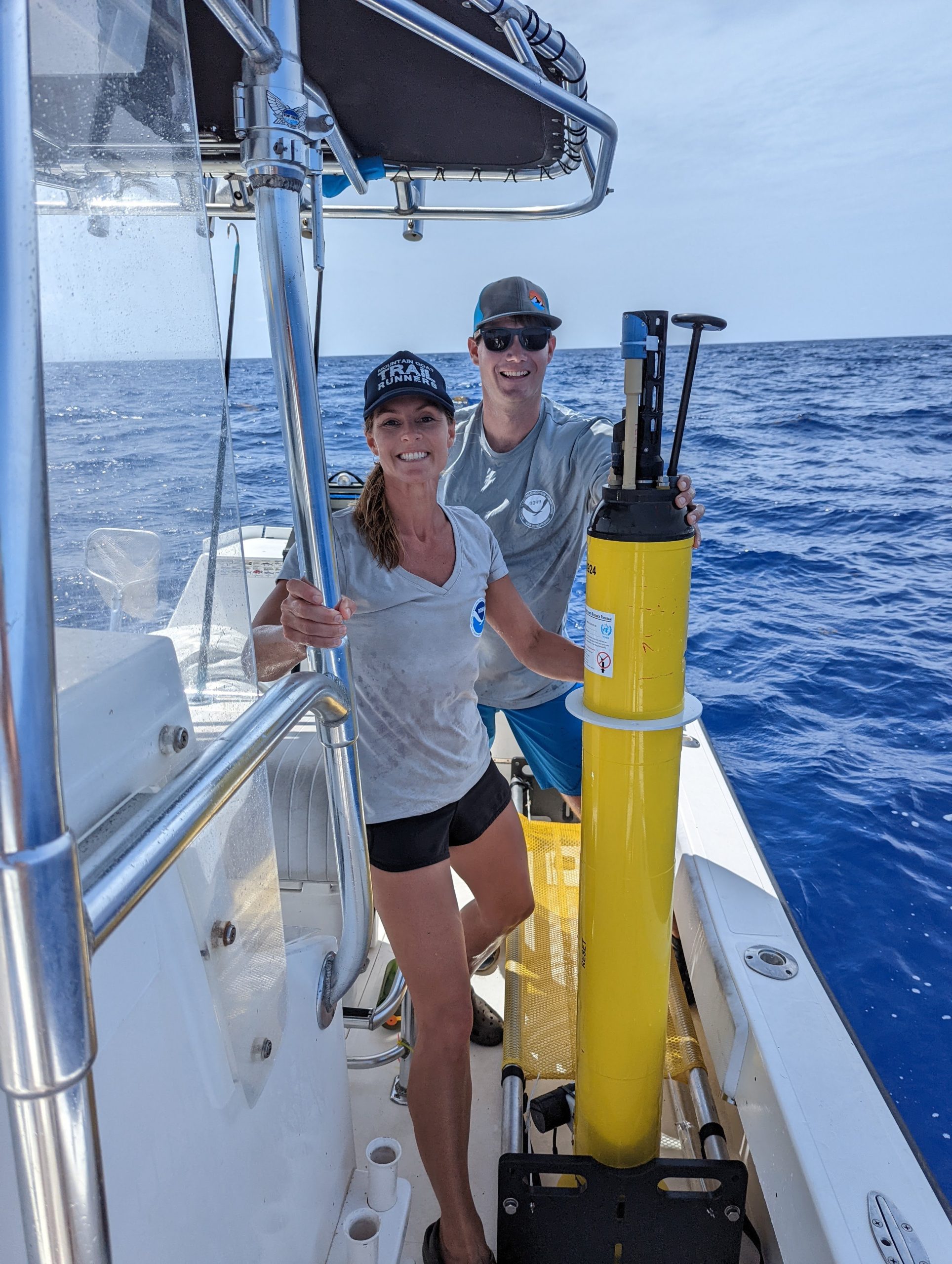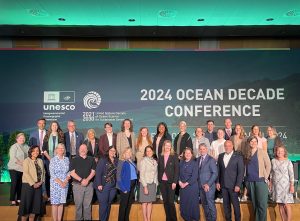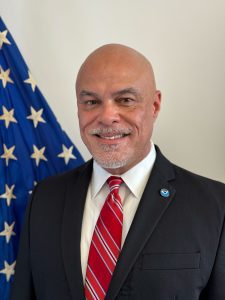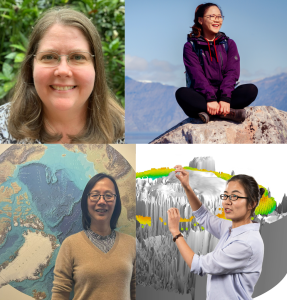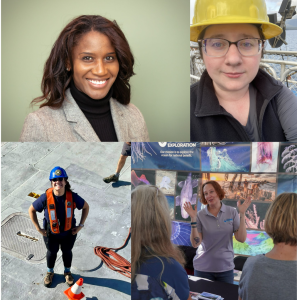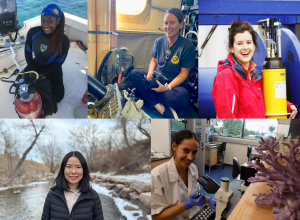To celebrate Women’s History Month, we asked women throughout NOAA Research who make lasting impacts in scientific research, leadership, and support from the field to the office to share how their work contributes to NOAA’s mission of Climate Resilience and preparing for a Climate-Ready Nation. This article highlights an interview with Jen McWhorter, a physical oceanographer at the NOAA Atlantic Oceanographic and Meteorological Laboratory who mainly conducts research using the Biogeochemical Argo array in the Gulf of Mexico.
Our conversation follows:
What drew you to your current career or field?
When I was 10 years old, I visited the Great Barrier Reef with my family. My Dad had been working in Melbourne for about six months when his company flew us to Australia for a visit. The tour boat out of Cairns took us to a shallow reef full of giant clams, corals, blue sea-stars and colorful fish. I remember returning to the boat after the snorkel and thinking, that was the most beautiful thing I had ever seen. I then learned on the boat back to the dock that the reef was extremely threatened due to climate change and that it may not be there in the future. This news from the tour operator broke my heart and inspired me to study the ocean. At that point, I knew this was my passion and career direction. My research and education journey has meandered amongst various topics in oceanography, climate science, and marine science but, my PhD research brought me back to the Great Barrier Reef 20 years later.
What projects or research are you working on now, and how does your work contribute to climate resilience?
The main project that I am working on right now is research using the Biogeochemical Argo array in the Gulf of Mexico. The array is taking measurements on oxygen, pH, nitrate, chlorophyll-a, BBP, temperature, and salinity, all extremely important for understanding the baseline conditions of this region before the projected changes occur. Some of the most productive fisheries and vibrant ecosystems exist in the Gulf and as the sea surface warms and major oceanic currents change, these ecosystems may not fare well into the future.
What does climate resilience or climate-ready nation mean to you? What would you want people to know about NOAA’s work on climate resilience?
A climate ready nation to me means that we are equipped with the right information to respond to natural disasters. NOAA provides many observations and information to the world in near-real time when faced with natural disasters. I am always proud to see the work of my colleagues as they provide applied science to some of the world's greatest challenges. Climate resilience means something different to me though, I think about the ability of ecosystems to adapt to climate change. The rate of warming and change makes it difficult for ecosystems to adapt and therefore results in the mortality of many species. As humans, we are included in these ecosystems and we are extremely resilient due to our ability to adapt. However, the societies expected to be the most adversely impacted by climate change don’t have the resources or wealth to address impacts to their food, homes, and economy.
What do you enjoy most about your work and what are some of your favorite accomplishments?
I really enjoy the latitude I have to develop research questions and to pursue them. I also enjoy being in the field, especially on small boats, research ships and diving in the ocean. I think it is important to connect with the environment in which you are studying. One of my favorite accomplishments that I am really proud of was finishing my PhD and the papers that have resulted from that work.
What challenges have you faced as a woman in your career/field and how have you overcome them?
I once worked on an all male team that put me in an unprofessional position to impress clients, when I brought it up to my supervisor, I was ‘laid off’ a couple weeks later. I like to think this culture has changed. It actually took me many years to realize what actually happened. I have overcome this by finding healthy work environments and working for good people.
While there are still many challenges women face in this field there is also progress occurring. Throughout my career I have seen that women are not just pursuing careers that used to be male dominated, they are thriving and leading.
Looking back, what would you tell yourself when you were 12 years old? What advice would you give to a woman who is starting her career?
In pursuit of your passion, make sure it can also financially support you, explore technical expertise that may increase your salary such as computer science and engineering.
A good place to start would be to recognize your strengths and interests. From there you can work on developing skills that complement those strengths and interests to guide your career. Also, good mentors can make all the difference, especially your teachers and supervisors.
Special thanks to Jennifer McWhoerter for participating in this interview for Women’s History Month at NOAA.
